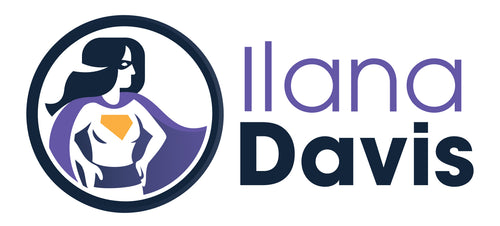2 Simple Ways To Get Started With Shopify
I’ve been hearing a lot of talk about folks wanting to jump on the Shopify band wagon, but are a bit hesitant. Perhaps you’ve been on WordPress for a long time and using the admin panel is crazy simple for you.
So why change and have to learn a whole new platform?
Perhaps you’re selling products at trade-shows or craft fairs. Or you have a few products that you could start to sell but not sure where to start.
I get it. This can be intimidating especially when you’re not sure if it’s worth the time, effort or cost.
Get your feet wet with Shopify
By adding a buy button to your current website in minutes, you can learn to utilize Shopify without investing a bunch of time creating a whole new website.
I’m going to assume you have created a Shopify account.
From there, you can create a new Sales Channel with a Buy Button.
Click the plus icon next to the Sales Channel and select Buy Button.
There are two possible options here
- Create Buy Button
- Create checkout link
1. Create Buy Button
The first option, Create Buy Button, will generate code to embed (add for those non-technical folks) in your website using HTML.
This is literally a button which you can customize so that it looks similar to the branding on your page. When you select Create Buy Button, you’ll also need to select a specific product or collection that will link directly to your Shopify checkout, cart or product description.
Select the Create Buy Button from the Sales Channel. A window will pop up allowing you to select a specific product or collection.
Collections
Choosing a collection, will add the button to each item. This is best used when you are using Shopify directly or you have a page on another website for products.
Select a collection where you want to add the button. You’ll see a new view that has an Add To Cart button under each product.
Individual Products and Variants
Choosing a product, has a similar layout, but you’re only selecting one product at a time. If you have multiple variants, you have two options.
- Selecting All variants will add a dropdown above the button depending on the action you select.
- Selecting a specific variant will follow whatever action you select for that specific variant only.
You can also select how the product is displayed.
- Basic shows the product title, cost, image and button.
- Button shows just the button.
- Enhanced shows the product title, cost, image, button and description.
Customizing your Buy Button
Actions
Determine the action a customer will experience if they click on the button such as
- Add To Cart (as it says, adds the product to their cart),
- Buy Now (directing your customers to check out), or
- View Product (directs customers to the product page).
Sizing
Setting the size is the size of the product image. Think of this like a grid. How many product images do you want to display in a row and how big will the images be for each product.
Bigger is not always better.
Too small and folks won’t be able to see your beautiful products.
Alignment
Alignment is pretty self explanatory. Do you want the text and button to be to the left, right or centered.
Branding
Now you can match the button with your branding. It’s likely that the branding has already transferred over so you don’t have to do much work here. But it’s an option nonetheless and handy if you haven’t set up your branding yet.
Options include colors, text size, rounded or square buttons, size, text, and font style. Depending on the action you selected, you’ll see more options to customize the your shopping cart and product details layout.
Generate the code
When all is good to go and you’re happy with how it looks, select Generate Code.
Another window will pop up with the code. Click Copy code to clipboard.
Open the HTML editor for the webpage where you want to display the collection. Simply paste the copied code within the HTML and save your changes.
IMPORTANT NOTE
One thing to note here is that Shopify doesn’t save this somewhere. They assume you’ve copied the code and it’s in your HTML page. If you close the window and come back to it, the code won’t be there and you’ll have to go through this process again. Which I found out the hard way of course.
So make sure you have it pasted and it’s working before you walk away or you may need to start all over again. I’d also recommend pasting the code into a word doc or something similar in case you want to reference the code for the future.
2. Create Checkout Link
The second option is a checkout link (no fancy button) that can be added like any other link. You may use something like this for email campaigns, direct message or social media.
Now let’s quickly explore the checkout link – because it’s much easier
Similar to the button, when you click Create checkout link, you’ll be directed to select a product.
In this case, you don’t have the option to choose a collection or all variants.
When you create a checkout link, you are creating a link for a specific product and a specific variant.
Select the product for which you want to create a link. Then select the variant.
Right away you’ll see the link under your variants.
Click Copy link to share via email campaigns, social media posts or direct messages.
Simple as that, right?
I don’t pretend to think this is easy. If you can do this, great. Go for it. If it feels intimidating or frankly, you simply don’t want to spend your time on this, hit me up.
JSON-LD for SEO
Get more organic search traffic from Google without having to fight for better rankings by utilizing search enhancements called Rich Results.








